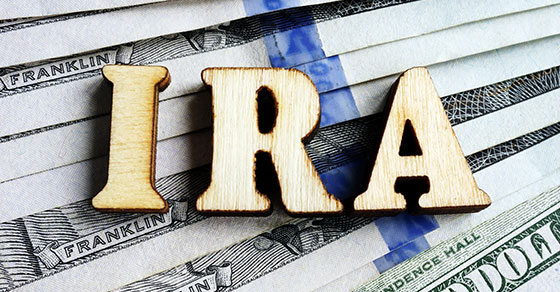
When you take withdrawals from your traditional IRA, you probably know that they’re taxable. But there may be a penalty tax on early withdrawals depending on how old you are when you take them and what you do with the money.
Important: Once you reach a certain age, you must start taking required minimum distributions from your traditional IRAs to avoid a different tax penalty. Previously, the required beginning date (RBD) was April 1 of the year after the year in which you turn 70½. However, a 2019 law changed the RBD to 72 for individuals who reach age 70½ after 2019.
But what if you want to take an “early” withdrawal, defined as one taken before age 59½? You’ll be hit with a 10% penalty tax unless an exception applies. This 10% early withdrawal penalty tax is on top of the regular income tax you’ll owe on the distribution.
Exceptions to the general rule
Fortunately, there are several exceptions to the early withdrawal penalty tax if you use the money for certain things. Common examples include:
- Paying for medical costs that exceed 7.5% of your adjusted gross income,
- Withdrawals up to the amount of qualified higher education expenses for you, your spouse, or the children or grandchildren of you or your spouse, and
- Withdrawals to buy or build a first home for a parent, grandparent, yourself, a spouse, or you or your spouse’s child or grandchild. This exception for first-time home purchases is subject to a lifetime limit of $10,000. A first-time homebuyer is someone who hasn’t had an ownership interest in a home in the last two years before buying a new home.
There’s also an exception to the early withdrawal penalty tax if you take annuity-like annual withdrawals under IRS guidelines. If distributions are made as part of a series of “substantially equal periodic payments” over your life expectancy or the life expectancies of you and your designated beneficiary, the tax doesn’t apply.
Be careful with rollovers
Be aware that the early withdrawal penalty may come into play if you’re moving funds out of an account. You can roll over funds from one IRA to another tax-free so long as you complete the rollover within 60 days. What if you miss the deadline? You may owe tax and the early withdrawal penalty if you’re younger than age 59½. (The IRS may waive the penalty if there are extenuating circumstances.)
We can help
We can tell you if you’re eligible for the exceptions described above or other exceptions to the 10% early withdrawal penalty tax. Be sure to keep good records so you can prove your eligibility.
